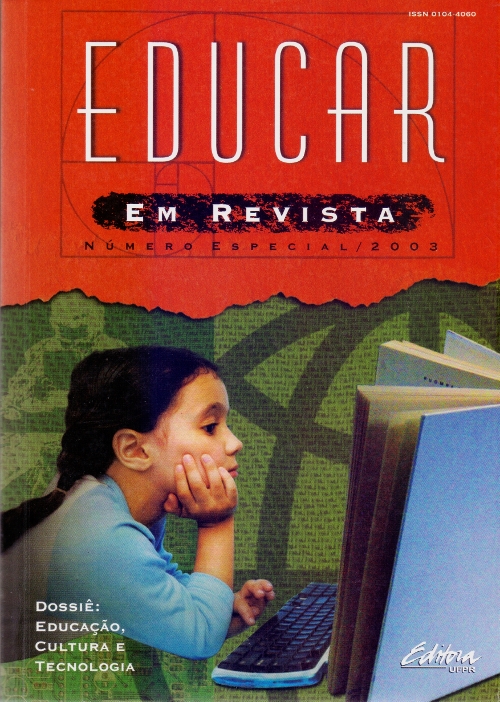As relações entre conhecimento tácito e conhecimento científico a partir da base microeletrônica: primeiras aproximações
Palavras-chave:
conhecimento tácito, novas tecnologias e educação, relação teoria e prática, tacit knowledge, new technologies and education, theory and practice relationship.Resumo
Este artigo apresenta uma síntese dos resultados que vêm sendo obtidos com a pesquisa Reestruturação produtiva e novas formas de trabalho: o novo projeto pedagógico para a educação científico-tecnológica financiada pelo Plano Sul de Pesquisa e Pós-graduação/CNPq/Fundação Araucária, que tem por objetivo delinear as novas dimensões que passam a integrar a categoria competência a partir da introdução da base microeletrônica nos processos produtivos e sociais, com vistas à identificação dos princípios pedagógicos que devem orientar os projetos educativos que objetivam a inclusão dos que vivem do trabalho.1 Para tanto, será discutida a categoria competência tal como historicamente vem sendo construída nos modos taylorista/fordista e toyotista de organizar e gerir a produção, buscando compreender os seus limites e possibilidades para uma possível inclusão dos que vivem do trabalho, com particular destaque para a relação entre teoria e prática e entre conhecimento tácito e conhecimento científico. Finalmente, será apontada a função mediadora da educação no estabelecimento de articulações entre trabalho e conhecimento.
Relations between tacit knowledge and scientific knowledge from a microelectronic base: first approaches
Abstract
This article presents the synthesis of the results which have been obtained by the research on the Productive restructuring and new work ways: the new pedagogical project for the scientific-technological education. Such work has been financed by the South Plan of Research and Pos-graduation/CNPq/ Fundação Araucária, and it aims to outline the new dimensions that start making part of the competence category through the introduction of the microelectronic basis into the productive and social processes, focusing on the identification of the pedagogical principles that must guide the educative projects aiming the inclusion of the ones who live from the work.2 Thus, the competence category will be discussed in the same way it has historically been built through the taylorist/fordist and toyotist ways of organizing and administrating the production, searching for the understanding of its limits and possibilities for a possible inclusion of the ones who live from the work, and outstanding the relationship between theory and practice and between tacit and scientific knowledge. Finally, the mediation function of the education in the setting up of articulations between work and knowledge will be pointed out.
Como Citar
Edição
Seção
Licença
Todo o conteúdo do periódico está licenciado sob uma Licença Creative Commons do tipo atribuição BY.
Os Direitos Autorais para artigos publicados na Educar em Revista são do autor, com direitos de primeira publicação para a revista. A revista é de acesso público (Open Access), sendo seus artigos de uso gratuito, com atribuições próprias, em aplicações educacionais e não-comerciais.



